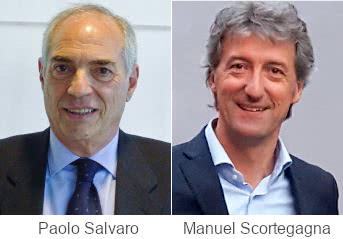
The elective assembly of Confetra Nord Est, held in Verona
at the AVAS headquarters at Interporto Quadrante Europa, has renewed its
unanimously confirming Paolo Salvaro
to the presidency, while Manuel Scortegagna has been appointed

vice-president. Scortegagna, managing director of Scortrans, is
also national vice-president of Fedespedi with specific responsibility for
land transport.
On the occasion of the assembly, Salvaro recalled that the North
Est is one of Italy's main production areas, a
a territory that exported goods worth 81.2 billion euros in 2022
equal to about 46% of the total wealth produced in the
region. The president of Confetra Nord Est underlined that the
logistics and transport are a key element in maintaining
and improve this performance and that ports and freight terminals are
doing their part but there are many issues to be addressed:
the accessibility of the port of Venice, the transit of the crossings
the enhancement of intermodality, the
Simplified Logistics of the port of Venice and Rovigo, are -
He specified - just some of the issues that we will follow closely.
Pointing out that "never before has logistics and transport been so important
are important for the resilience and development of the economy',
Scortegagna pointed out that it is necessary to "push on the
digitalization that dematerializes many
procedures, and which provides very useful data for the
efficient and sustainable management of both our businesses and our
logistics chains as a whole. Today," he continued,
Scortegagna - logistics professionals are an irreplaceable partner
of manufacturing companies, supports them in the complex and sometimes
difficult choices to move raw materials and finished products between
continents. International tensions in recent years have
highlighted how fragile these links can be. We
we must contribute to making our country's logistics a
reliable, safe and sustainable service for our economy,
improving our already excellent performance but prodding
institutional decision-makers in order to ensure that the
removed and overcome all those infrastructural inefficiencies,
management and operational issues, which often weigh down our
system'.